Hong Kong cleans up 93 tonnes of palm oil spill, beaches smothered by spill
Dead fish, shells, rocks, plastic bottles and other rubbish could still be found coated with globules of palm oil on beaches across the Chinese-controlled territory six days.
Hong Kong stepped up efforts on Wednesday to clean up a massive palm oil spill, with authorities scooping up more than 90 tonnes of foul-smelling, styrofoam-like clumps in one of the worst environmental disasters to blight the territory’s waters.
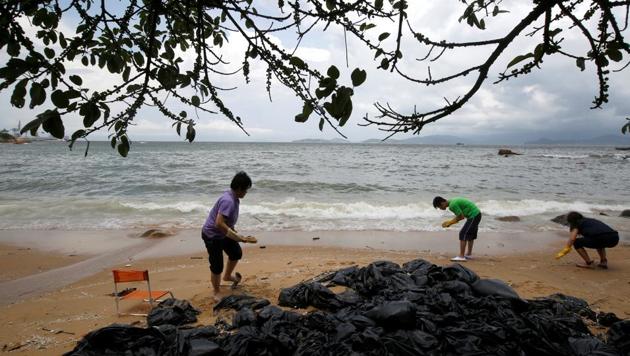
Dead fish, shells, rocks, plastic bottles and other rubbish could still be found coated with globules of palm oil on beaches across the Chinese-controlled territory six days after the spill caused after two vessels collided in the Pearl River estuary.
The government said it had scooped up 93 tonnes of oil waste, most of it congealed, and the amount left floating on the sea surface had fallen significantly.
Stretches of some of Hong Kong’s most popular beaches were still smothered with white clumps of jelly-like palm oil on Wednesday and an accompanying sour stench.
The spill has sparked outrage among some residents and environmentalists and comes just a year after mountains of rubbish washed up on Hong Kong’s beaches, with labels and packaging indicating most of it had come from mainland China.
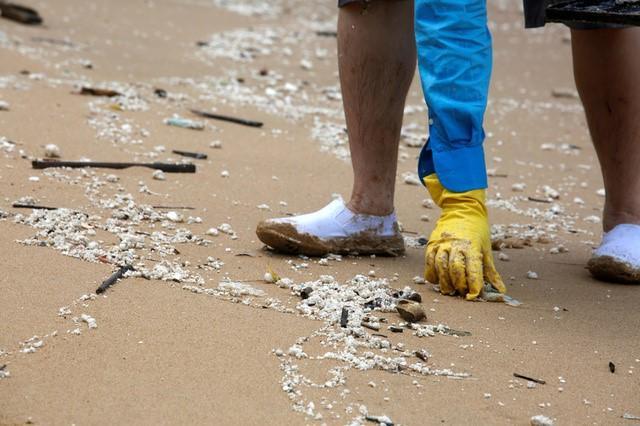
The government has closed 13 beaches since Sunday, a day after it said it had been informed of the spill by mainland authorities. The Marine Department confirmed the collision happened on Thursday.
Environmental groups have said the size of the spill could bring severe ecological consequences, although the government said preliminary tests showed few traces of oil in affected areas.
Samantha Lee, conservation manager at the World Wildlife Fund in Hong Kong, said 1,000 tonnes of palm oil spilled into the water after the vessels collided, out of a total of 9,000 tonnes.
Media quoted the Environment Bureau as saying the government was discussing the legal liability for the disaster with the shipping company involved, which it declined to identify.

The impact on the territory’s marine life, which includes the endangered Chinese white dolphins - also known as pink dolphins - was not immediately clear.
On Pui O beach on Lantau Island, large stinking clumps of congealed palm oil dotted the shoreline, and a rock formation at one end that children love to climb was coated in the slippery substance.
Scores of workers fanned out to scoop up oil waste, more than 100 black bags of which were piled up early on Wednesday ready to be trucked away.
There was a similar scene on nearby Lamma Island, where authorities and residents have also cleaned up tonnes of oil.
The spill comes at the height of summer, when visitors, campers and holiday makers throng to beaches and outlying islands, especially at weekends.
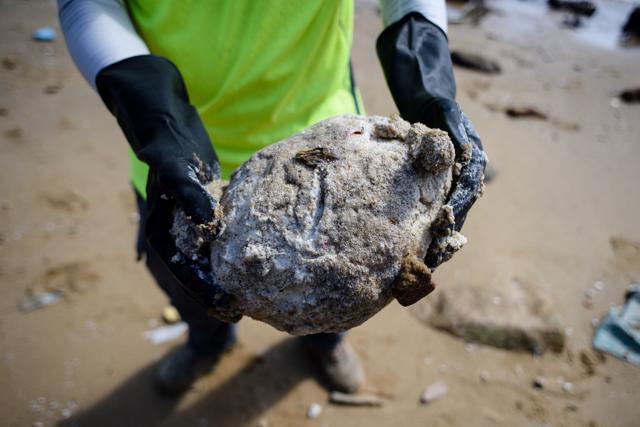
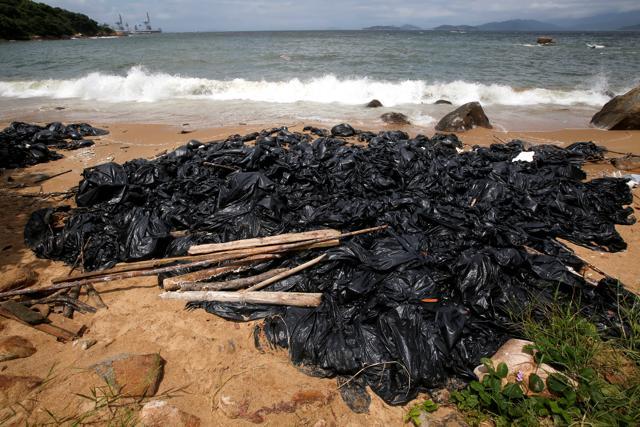
Hong Kong has sweltered in temperatures of about 33 degrees Celsius (91 Fahrenheit) for more than a week, with little relief expected soon, which some environmentalists fear could worsen the problem by oxidising the oil.
The possibility of an algae bloom formed by decaying palm oil, which would compete with fish for oxygen, would be a huge threat.
The Environmental Protection Department said it would continue collecting samples from beaches and recommend phased re-opening once the water quality is confirmed safe.
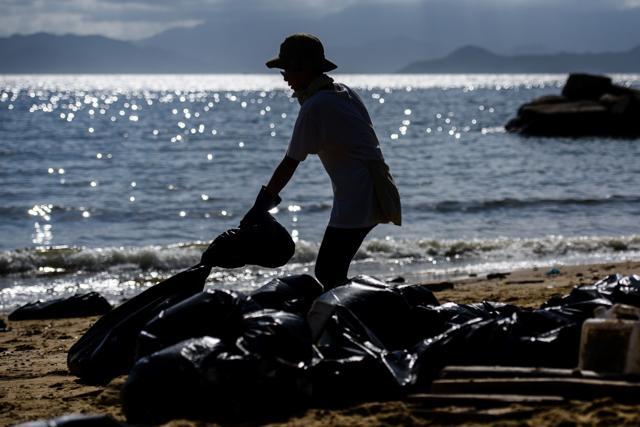
Hong Kong’s coastal waters and beaches are often strewn with rubbish from mainland China, where some companies discharge waste into the sea to cut costs, conservationists say.





